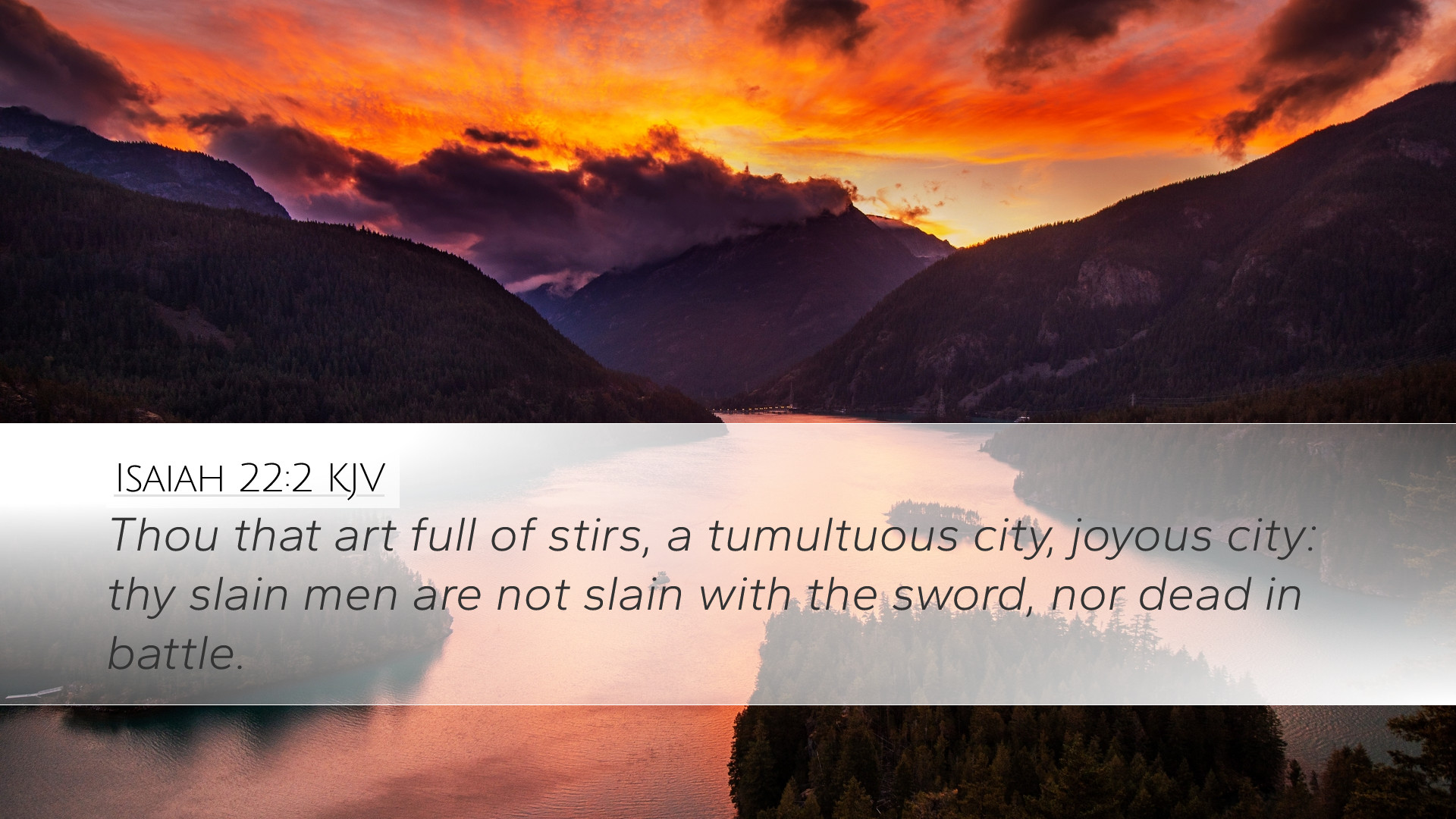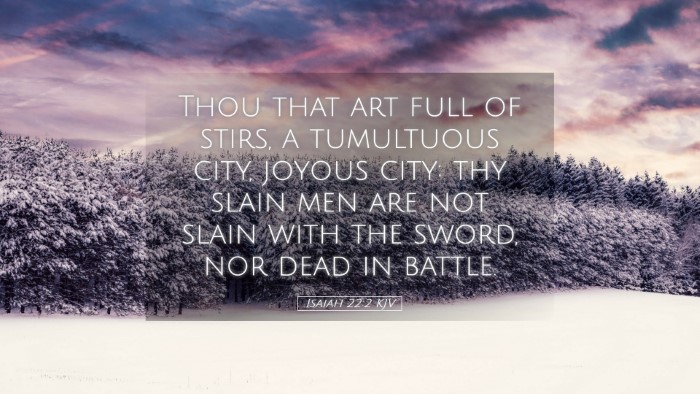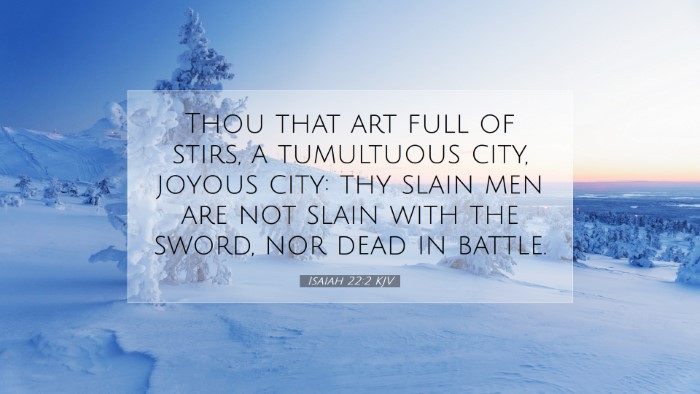Commentary on Isaiah 22:2
Verse: "You who are full of noise, A tumultuous city, A joyous city; Your slain men are not slain with the sword, Nor dead in battle."
Introduction
This verse from the Book of Isaiah presents a vivid picture of a tumultuous city engulfed in celebration and noise even amidst impending disaster. The commentary here synthesizes insights from various public domain sources, revealing the complexities and theological significance embedded in this text.
Contextual Background
Isaiah, often referred to as the prophet of judgment and hope, addresses the people of Jerusalem and Judah during a time of political turmoil and moral decline. Chapter 22 describes a siege against Jerusalem, a city characterized by its rich spiritual heritage yet plagued by sin and rebellion.
- Historical Context: The context of the late eighth century B.C. sees Jerusalem facing military threats from Assyria. Isaiah’s role was to warn the inhabitants and call them back to faithfulness to God.
- Geographical Significance: Jerusalem, being set on a hill, often felt invulnerable. This perception adds gravity to the warning, as the very heart of their hope is about to be challenged.
Analysis of Key Themes
In this verse, the prophet Isaiah uses the imagery of noise and joy within the city to convey a stark contrast between the superficial celebrations of the people and the underlying danger they face.
The Tumultuous City
Isaiah’s description of the city as "full of noise" speaks volumes about the spiritual state of Jerusalem:
- Spiritual Blindness: The noise symbolizes a false sense of security. Despite their jubilation, the people remain oblivious to the judgment looming over them.
- Distraction from Reality: The celebrations can be understood as distractions from the real spiritual and physical threats surrounding the city.
The Joyous City
This second designation reinforces the idea of misplaced happiness:
- Temporal Joy: The people of Jerusalem experience joy rooted in earthly pleasures, ignoring the call to repentance from their sins.
- God’s Discipline: The joyous atmosphere is a stark contrast to the discipline that the Lord is about to enact upon them due to their unfaithfulness.
Theological Implications
Isaiah 22:2 serves as a profound reminder of the weight of prophetic warning and the seriousness of sin:
- Jubilation vs. Judgment: The juxtaposition of joy and the impending judgment serves as a call for self-examination of one’s spiritual state.
- The Nature of True Joy: This verse challenges the understanding of joy and peace that is not aware of the context of divine holiness and judgment.
- The Path to Restoration: The call here is not merely to lament but to seek true restoration through repentance.
Comments from Public Domain Commentaries
Matthew Henry
Matthew Henry provides insightful reflections on this verse, emphasizing the folly of joy in a time of disaster. He notes that Jerusalem’s gaiety reflects a “spirit of rejoicing” that is misplaced since it is not anchored in the awareness of their spiritual condition. Henry underscores the essential truth that true joy cannot exist where there is no acknowledgment of sin and its consequences.
Albert Barnes
Albert Barnes elaborates on the imagery of “slain men” not falling by the sword nor in battle. He argues that this points to the spiritual captivity that awaited Jerusalem. The people, caught up in their revelry, fail to recognize that their security is not in military strength but rather in their relationship with God. Barnes highlights the impending moral and spiritual degradation that the people of God often overlook during times of false peace.
Adam Clarke
Adam Clarke connects the chaotic scenes described in this verse with the larger narrative of God’s judgment upon humanity’s sin. He passionately argues that the “tumultuous” atmosphere signifies a rejection of God’s truth, leading to a hollow form of celebration. Clarke emphasizes the importance of heeding prophetic warnings and calls for sincere reflection and repentance among God’s people to avert judgment.
Conclusion
Isaiah 22:2 is a sobering reminder of the contrasts between human celebration and divine judgment. As pastors, students, theologians, and scholars reflect deeply on this verse, they are encouraged to discern the condition of their hearts and communities. The misalignment of joy and sin calls for a restoration of spiritual vitality that acknowledges God’s holiness and leads to genuine reconciliation through faith and repentance.


